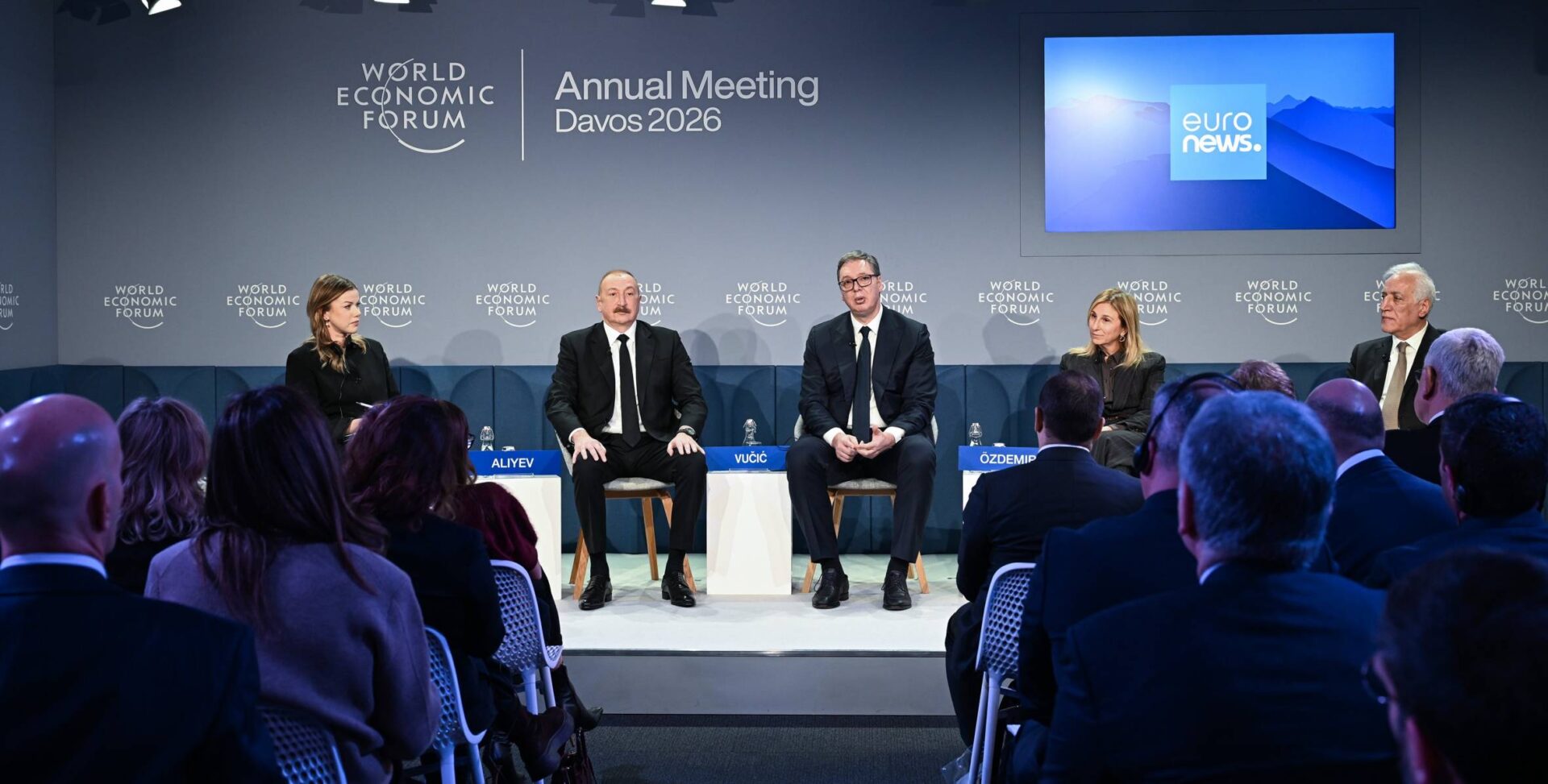UNITED STATES AND KYRGYZSTAN SIGN LONG-TERM MILITARY COOPERATION DEAL
UNITED STATES AND KYRGYZSTAN SIGN LONG-TERM MILITARY COOPERATION DEAL
Since the deployment of U.S. and coalition forces to Ganci airbase at Manas, Kyrgyzstan has been keen to develop its case for increased U.S. security assistance. Numerous agreements have been signed and revised, keeping alive the current tenuous and controversial security relationship between the two countries. Bishkek must try to balance its relations between Washington and Moscow, while dealing with the growing interests of China. But an October 2 breakthrough agreement between the United States and Kyrgyzstan to further develop bilateral military cooperation in the longer-term has signaled an improvement in the relationship, allowing planners to consider in more detail the specific needs of the former Soviet republic.
U.S. Deputy Assistant Secretary of Defense for Eurasian States James McDougall headed the U.S. delegation during these talks. Representatives of USCENTCOM Brigadier-General Arthur F. Diehl III, Captain Craig Palmer of the joint committee of the Chiefs of Staff, Colonel John Moseley, and the U.S. military attache in Kyrgyzstan, Lieutenant-Colonel Mark Hallisey, attended the talks. The two sides worked out detailed proposals for developing and strengthening the current bilateral military cooperation program, building on work done that predates 9/11 led by special forces A-Teams, enlarging the scope and commitment to a five-year cooperation plan running from 2005-2010.
The cooperation plan itself is geared towards enhancing key aspects of the Kyrgyz armed forces. It begins with financial aspects that will provide the basis for future reform, aiming at improving the infrastructure and material basis for a key military unit (most likely Special Forces), which has been supported by the Kyrgyz government with it making a clear commitment to making necessary funds available. Special Forces and peacekeeping units are a vital part of the cooperation plan, though this will take longer to implement and will require as much input, support, and training from the United States as can be afforded, probably on a greater level than previously. It also foresees the creation of a center for managing joint counter-terrorist operations and will give priority to information systems and equipment. The severe lack of air mobility options for Kyrgyzstan is considered in the plan, which will be an area for future attention, as the insertion of Special Forces, and participation in regional or international peacekeeping operations will require air mobility enhancement (Kabar News Agency, October 5).
However, perhaps the most surprising feature of the deal was not merely the signing of the plan, which moves bilateral military cooperation to a more long-term footing, but the nature of the Kyrgyz proposals and requests. The U.S. delegation reportedly suggested not only their approval of the priorities of the Kyrgyz delegation, but ventured the opinion that it represented the best worked out and most justified framework in the Central Asian region. Though no direct comparison was made with Kazakhstan, with whom Washington signed a similar plan in September 2003, it is puzzling to say the least as to where or how this “expertise” could have developed on the Kyrgyz side. If, for instance, the United States engineered it through unofficial channels, it risks conveying a negative message of Washington’s preferences in the region for Bishkek, perhaps undercutting the inter-state rivalry between Kazakhstan and Uzbekistan. On the other hand, with most of the official expertise within the Kyrgyz Ministry of Defense being inherently pro-Russian, it seems unlikely that it could have originated from Bishkek itself.
McDougall’s meeting with President Askar Akayev underscored the significance that Washington has attached to Kyrgyzstan in the war on terror. Praising Kyrgyzstan for its supportive role in the struggle against international terrorism, he highlighted the need for continued U.S. assistance to help Bishkek fight terrorism and illegal drug trafficking.
Nonetheless, the U.S. is not the only NATO member state offering increased military cooperation to Kyrgyzstan. Other countries such as the UK and France have stepped up efforts to help with defense reform and English language training and assist in strengthening Kyrgyz peacekeeping capabilities. France has concluded its own less well-publicized agreement in a bilateral military cooperation plan for 2005 signed in Bishkek on October 4. Lieutenant-General Patrick de Rousiers, chief of the military cooperation directorate of the French General Staff, confirmed the plan would focus on Kyrgyz Special Forces, peacekeeping, and medical units as well as on military language skills. France will also provide more places for Kyrgyz servicemen at its higher military educational establishments, though the present numbers are very small (Kabar, October 4).
During his September 28 address to the UN General Assembly, President Akayev encouraged the formation of a single, united anti-terrorist front in the global war on terrorism. “We have been convinced that in this way cooperation between these superpowers is strengthening in the war against the common enemy. Our Kyrgyz soil is and will, in future, too, be a scene of cooperation and the uniting of the efforts of the superpowers, and not a scene of rivalry.” Akayev is acutely aware of the need to avoid competition on Kyrgyz soil or within the region, involving the Great Powers, but in the aftermath of the barbaric events in Beslan, which have affected the security thinking of many CIS countries, there appears to be new hope for genuine cooperation, eschewing negative power politics and searching instead for collaborative efforts towards stabilizing the region. The U.S. cooperation plan will succeed or fail on this reality.


